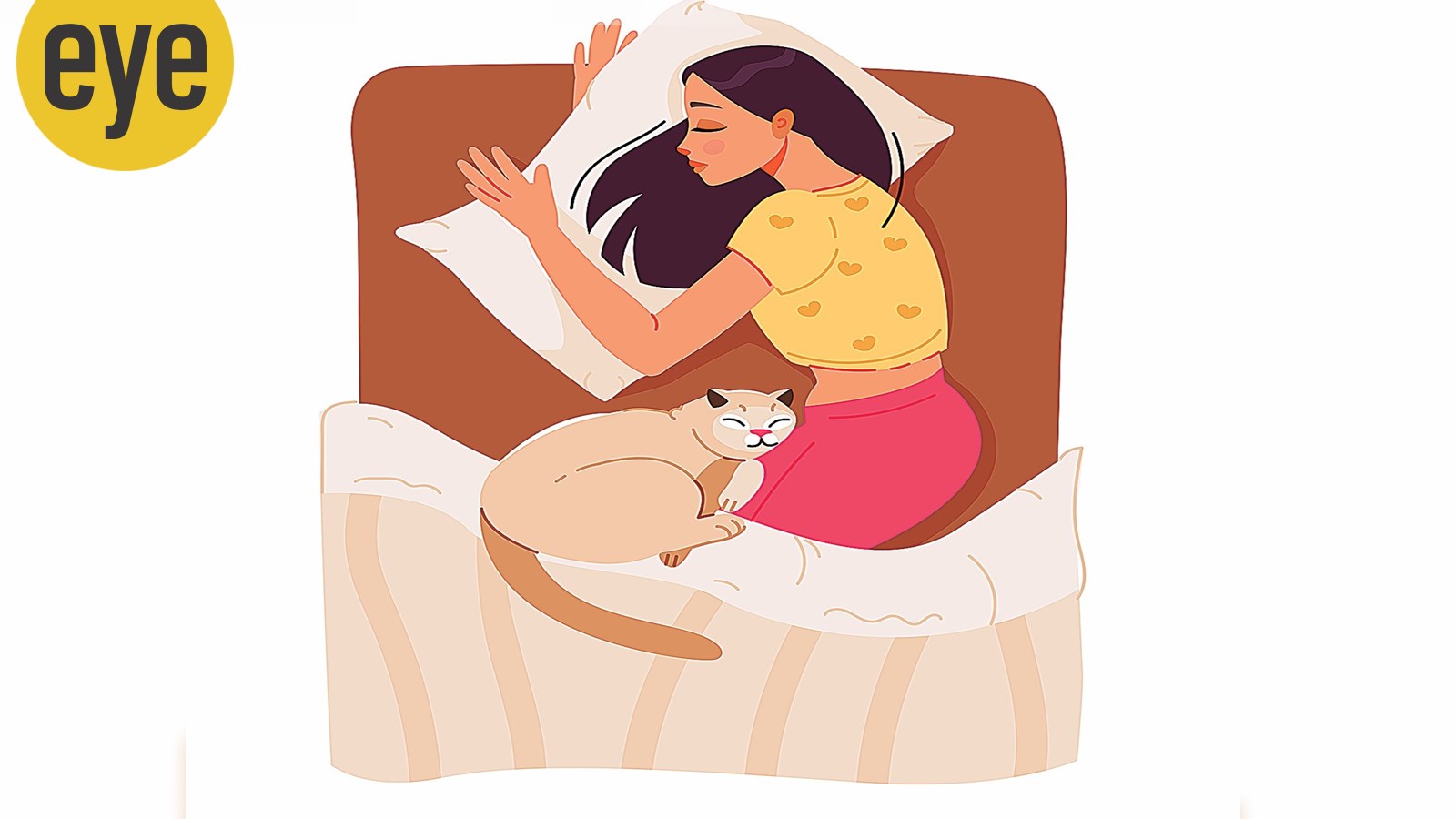Go slow to go far
Wishing you a year of loitering with intent
 Our life is what we pay attention to. What are you paying attention to in the 168 hours of your week? (Source: Getty Images)
Our life is what we pay attention to. What are you paying attention to in the 168 hours of your week? (Source: Getty Images)Imagine if we could zoom out and view the earth from a wide lens at about 30,000 feet and witness the daily lives of urban people as if on time-lapse mode. What would we see? People dashing off in the morning to school/college/work, meeting deadlines, a flurry of after-school activities, honking through traffic jams, grabbing quick meals, endless scrolling, checking and rechecking emails, surfing through TV channels, catching up with friends or family, crashing out to wake up to an alarm to start the cycle again.
Now what if we could zoom in on one such harried person and asked them what was happening? What is all this urgency about? What would they say? Maybe they might say, “There is never enough time to do everything on our to-do lists – the only way we can manage is if we speed up.” And we might ask the person, “But why?” They might look at us as if we have lost our minds and say, “This is life, you have to keep up or you are out of the game.”
The game of speed has become the currency of our times. Our culture condemns anything slow. The faster the better – be it food, shopping, internet, fashion trends, entertainment, learning, travel, work – everything instant, everything at the click of a key. But at what cost? Zoom out again and you see the arctic ice is melting, the pandemic has killed millions, and people can barely breathe in our over-polluted, overpopulated cities but we are too busy to step away from the treadmill of our frenetic lives. Zoom back in and we see the impact of it on people’s health and well-being.
If I were to pick up a common theme that most people seem to be struggling with it would be,” “I am not doing enough,” “I am too slow,” leading to the conclusion, “I am unworthy.” We have internalised the cultural propaganda of constant racing so it should not come as a surprise that our mental health struggles are at an all-time high.
Sana’s day started at 5 am when she got ready for her football practice, after which a full day of school, then back home followed by either dance, creative writing class or a planned play date, then back home to do her homework, dinner, reading time before bed. She had come to me with her mother as she had not been sleeping well at night. She told me, “I am constantly feeling guilty that I am not doing enough and that I am a loser.” Sana is just an eight-year-old in Grade 3. I shudder to imagine what it would be like when she hits the tuition and coaching circuit in high school. From the time they are little, children have been brought up with a constant hum of, “Hurry,” “Do it now and do it fast.” Like clockwork toys, we keep winding them up, and when all that pressure starts taking a toll on them, we criticise them for being a “loser,” and not up to speed.
Shyla is a lot older than Sana, but she had lived in what she called, the “hamster wheel of dopamine high,” for many years. The constant buzz of getting things done can be really seductive. There is a heady rush as we tick off things from our never-ending to-do list, but this hustling comes at a cost too. We stumble forward exhausting our energy from one surge demand to another. If an eight-year-old is feeling guilty about not doing enough, then we really have to pause and reflect on what steps we need to take to opt out of the tyranny of the “hamster wheel” culture.
Act of refusal – I resonate so much with Jack Halberstam’s quote from his wonderful book, Queer Art of Failure (Duke University Press, 2011), “Failing at something that society has told us to do can be a revolutionary act.” These micro-acts can be as tiny as talking slowly (I had to teach myself that), doing one thing at a time, refusing to do things that drain us out like endless scrolling on Instagram, Netflix binges, meaningless socialising, taking on too many projects, keeping a perfect home etc. These step-backs might seem trivial but you will be amazed at the ripple effect they can have in our over-committed and over-engineered lives. Why speed race the rest of our time on earth and wonder at the end where it all went?
Put guardrails on what matters – While I was writing this column on a Sunday, our cat, Tula, tried to nudge the laptop off me so that he could nestle in. As I tried to push him away, the irony of the situation hit me. I was writing about slowing down while I was racing for the deadline myself. I put the writing away and curled up with Tula for an hour-long nap in the winter sun. It was a delightful experience I might have lost out on for the sake of speed. Our life is what we pay attention to. What are you paying attention to in the 168 hours of your week? If I had been more intentional about my time in the previous week, I might have spent less time on answering endless emails (Sisyphean task!), watching useless shows on OTT, and missed a social event that did not mean much to me. I might have used that time to slowly work on my column rather than rushing through it on Sunday and depriving myself of sun-soaked catnap (pun intended).
Go slow to go far – I am a keen campaigner for a slow life though you can see I have serious lapses. In narrative practice, we have a mantra – “Go slow to go far” and there is so much wisdom in this. Our conversations in therapy can become more meaningful and the impact on people’s lives stronger when we slow things down. It sounds quite counter-intuitive, doesn’t it? Suppose we take an example of writing a book. I hear this very often from people, “I want to write a book, but I do not have time.” Actually, they can find time as less than just taking out one hour a day or little longer stretches during weekends and holidays. Slowly and slowly brewing that idea, diving deep to reflect, loiter and create. You will be amazed at how your mind can create magic when it is not working like a hyperactive beehive. As a parent you can find that one thing that your child loves to do, what is important for them – dancing, sports, art, reading, music, writing., anything. Try to make sure they have fun with that activity, without any urgency, every day and see them build the skills for a slow life. Shyla explained to me, “What matters is a slow, engaged, intentional and curated life.” So as 2024 rolls out, let’s slow down, savour the metaphorical winter sun and loiter with intent.
- 01
- 02
- 03
- 04
- 05































